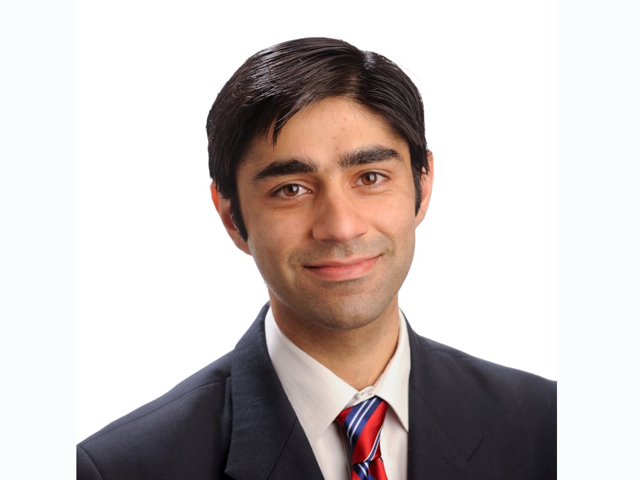
Islamabad, October 13: Pakistan Prime minister’s aide Dr Moeed Yusuf on Tuesday said that Pakistan was ready to hold talks with India, provided Kashmir was included as a third party, Dawn news reported.
In an interview with Indian media outlet The Wire, Yusuf revealed that India had expressed a “desire for conversation” but said that Pakistan’s agreement to talks would be conditional. The conditions include the immediate release of occupied Kashmir’s political prisoners, lifting of the heavy military siege from the territory, reversal of New Delhi’s decision to strip the region of its special status, ending human rights violations in the valley and a stop to India’s state-sponsored terrorism against Pakistan.
This is the first time a Pakistani government official has given an interview to an Indian news outlet since India repealed occupied Kashmir’s special status last year. Indian journalist Karan Thapar interviewed the premier’s special assistant virtually.
The interview started with last year’s decision by the Indian government to strip occupied Kashmir of its special status, with Thapar asking why Pakistan was “so worked up” on the issue which, the journalist said, was India’s “internal” matter.
The SAPM, however, said that the Indian Muslims did not want to be “ruled by India”. He quoted Kashmiri leader Farooq Abdullah, who during an interview with Thapar had said that Kashmiris living in the occupied territory “would much rather be ruled by Chinese” than India.
Yusuf further said that the world was “calling India out” over its actions in occupied Kashmir.
“That’s the reality. Kashmiris can’t bear the thought of being Indian. Kashmiris hate Hindustan,” he told Thapar. He further said that while India had “never obeyed” the UN charter and resolutions, it had now “formally stated [that] you’re going to violate them”.
He regretted that India had chosen to take a “unilateral” decision bypassing the United Nations Security Council resolutions, as well as the bilateral Simla Agreement, signed between New Delhi and Islamabad.
“When you did something unilateral you had to bring in a 180,000 troops, lie to the world that there was a terrorist threat and then Indian government perpetrated terrorism on August 5. And a year later, you had to impose curfew.
“When you say that the wishes of the people don’t matter, that’s where you go wrong.”
“The day India recognises that only the wishes of people of Kashmir matter, this issue can be resolved,” Yusuf told Thapar.
The premier’s aide explained that while Pakistan had never recognised the now scraped Article 370 of the Indian constitution, adding that Islamabad was “raising the issue [of the Article being repealed] because you (India) have formally gone outside the UN charter and resolutions by making a permanent change to a territory I rightfully claim as mine”.
In response to a question, Yusuf said “no decision has been made” regarding granting Gilgit Baltistan a provincial status but added that the matter was the subject of “public debate”.
“If it was so confirmed and so done, where is the act?” Yusuf said when asked if Pakistan had granted provincial status to GB and if such a step would be a contradiction to Islamabad’s opposition to New Delhi’s decision to abrogate Article 370 of the Indian constitution.
“One: no decision has been made. Two: there is a public debate. The public debate has not been generated by the government of Pakistan. It’s been generated by the people of Gilgit Baltistan. They have been saying this for two or three years now. What are they saying? ‘We want to be fully integrated with Pakistan.’
“Now you tell me Karan, if a people is not treated well, would they ever want that? I’ve never heard the Kashmiri Muslims talk about this in the occupied territory,” Yusuf said.
He further said that Pakistan’s decision would be in line with the resolutions passed by the UNSC.
“If the resolutions bar permanent change of territorial status, there will be no permanent change,” Yusuf stated, adding that the matter was being debated in Pakistan since “this is how democratic societies” work.
“Democratic societies, by the way, do not bring in 180,000 troops to change the status of a territory. That’s the difference between Pakistan and India right now,” Yusuf said, referring to heavy Indian military deployment in occupied Kashmir since August 2019.
He agreed with Thapar that GB was a disputed territory, saying that the region would be included in the plebiscite “the day [it] happens”.
He further said that India had left Pakistan with no choice but to speak out on the Kashmir issue on a global stage as the former had repeatedly rejected Islamabad’s offers for talks.
On the way forward for Pakistan-India ties, Yusuf said the two countries “need to sit down like adults” and talk about the two fundamental issues affecting their ties — Kashmir and terrorism.
“There has to be an enabling environment to talk. Create that and you will find us willing the next day. Take that one step [and] you will see my prime minister take two,” he said, addressing the Indian leadership.
(The news items was first published in Dawn)
